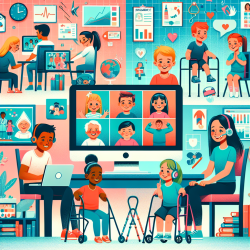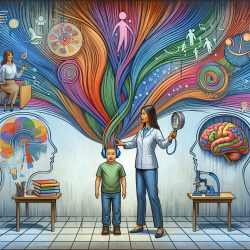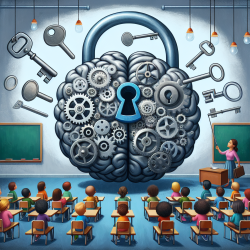As practitioners in the field of special education, we are always on the lookout for innovative and effective interventions to support our students. The recent research titled A Pilot Randomised Control Trial of Digitally-Mediated Social Stories for Children on the Autism Spectrum provides valuable insights into the benefits of using digitally-mediated social stories to improve behavior outcomes in children with autism.
Understanding Digitally-Mediated Social Stories
Social stories are personalized narratives designed to teach children on the autism spectrum appropriate social behaviors by explicitly detailing social cues, perspectives, and responses. Traditionally, these stories are delivered in written or pictorial formats. However, this study explores the effectiveness of delivering social stories through digital platforms, such as tablets or computers.
Key Findings from the Study
The study conducted a pilot Randomised Control Trial (RCT) with 15 children on the autism spectrum. Participants were divided into two groups: one received digitally-mediated social stories, while the control group received a poem. The intervention lasted two weeks, with follow-ups conducted six weeks post-intervention.
- Behavioral Improvements: The intervention group showed significant reductions in the frequency and intensity of maladaptive behaviors compared to the control group. These improvements were sustained at the six-week follow-up.
- Enhanced Understanding: Children who received the digitally-mediated social stories demonstrated increased understanding of appropriate behaviors.
- Consistency and Engagement: Digital delivery provided a consistent and engaging format that catered to the visual learning strengths of children with autism.
Implications for Practitioners
These findings have several implications for practitioners:
- Adopt Digital Platforms: Consider incorporating digital platforms to deliver social stories. Tools like tablets and specialized apps can make the intervention more engaging and effective.
- Personalization: Ensure that social stories are tailored to the individual needs and interests of each child, enhancing the relevance and impact of the intervention.
- Training and Support: Provide training for educators and parents on how to create and deliver digitally-mediated social stories to maximize their effectiveness.
Encouraging Further Research
While the results of this pilot study are promising, further research with larger sample sizes and diverse settings is needed to confirm the findings and refine the intervention strategies. Practitioners are encouraged to contribute to this growing body of research by documenting their experiences and outcomes when implementing digitally-mediated social stories.
To read the original research paper, please follow this link: A Pilot Randomised Control Trial of Digitally-Mediated Social Stories for Children on the Autism Spectrum.










